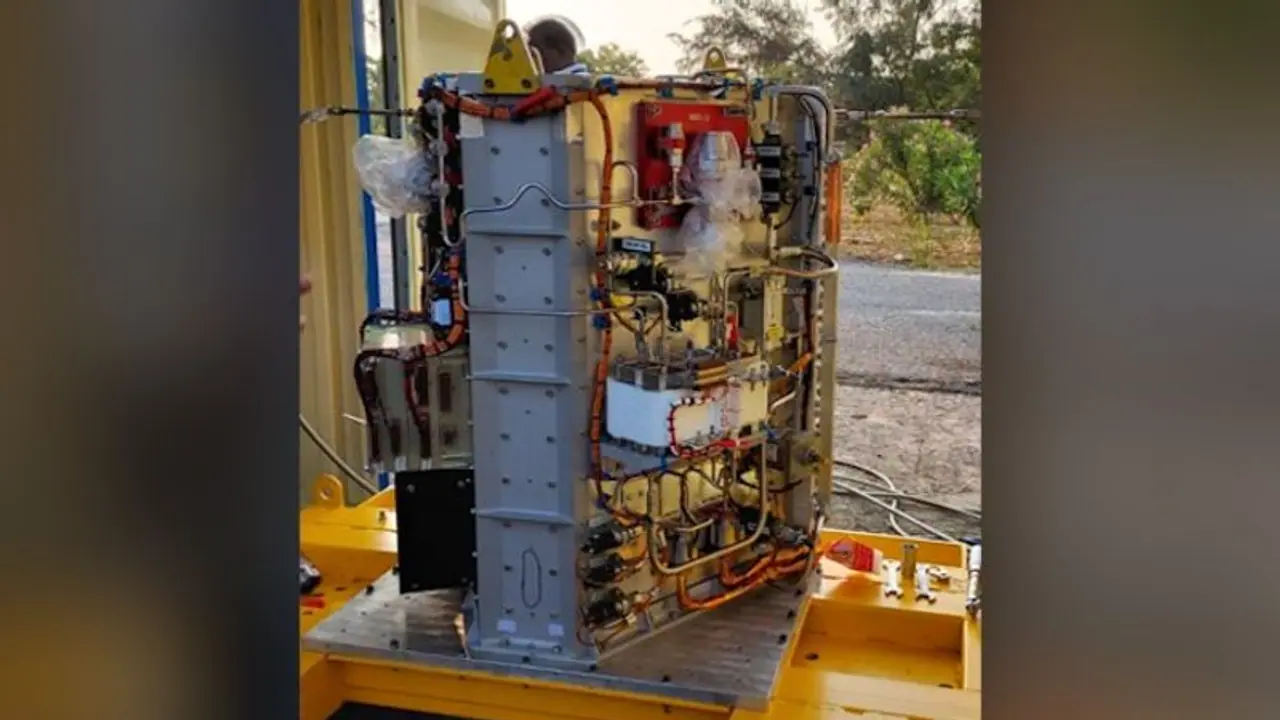The test involved the "100W class Polymer Electrolyte Membrane Fuel Cell based Power System (FCPS)," conducted in space on the PSLV Orbital Experimental Module (POEM), launched via PSLV-C58 on January 1.
On Friday, ISRO announced the successful testing of an innovative fuel cell-based power system, capable of potentially powering the envisioned space station and offering broader societal applications. The test involved the "100W class Polymer Electrolyte Membrane Fuel Cell based Power System (FCPS)," conducted in space on the PSLV Orbital Experimental Module (POEM), launched via PSLV-C58 on January 1.

The fuel cell serves as an optimal power source for the Space Station, offering both electrical power and distilled water.
“The objective of the experiment was to assess Polymer Electrolyte Membrane Fuel cell operation in space and to collect data to facilitate the design of systems for future missions. During the short duration test onboard POEM, 180W power was generated from Hydrogen and Oxygen gases stored onboard in high-pressure vessels,” ISRO said.
It further mentioned that the test yielded a substantial amount of data regarding the performance of diverse static and dynamic systems integrated into the power system, shedding light on the underlying physics involved.
“Hydrogen Fuel Cells produce electricity directly from Hydrogen and Oxygen gases, along with pure water and heat. It is an electric generator which works on electrochemical principles, as in batteries, as against the combustion reactions employed in conventional generators,” ISRO said.
The space agency highlighted that the efficiency of fuel cells lies in their capability to generate electricity directly from fuels without intermediate steps. Emphasizing that these fuel cells are entirely emission-free, the agency noted that water is the sole byproduct.
“These features make them ideal candidates for space missions involving humans where electric power, water and heat are essential since a single system can meet multiple requirements in the mission. Fuel Cells also possess significant societal application potential,” ISRO said.
Fuel cells are also regarded as the most suitable solution for replacing engines in various types of vehicles currently in use and for providing power to standby power systems.
“Fuel Cells can provide range and fuel recharge time equaling that of today’s conventional engine, which gives them a distinct advantage over batteries, and are expected to facilitate emission free transportation. Fuel cell is an ideal power source for the Space Station as it provides both power and pure water,” ISRO said.
